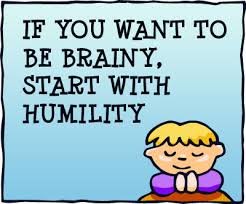 Last night, standing in the parking lot of my church, I heard loud, popping sounds behind a screen of trees. Apparently, the children next door were celebrating the Fourth of July two days early.
Last night, standing in the parking lot of my church, I heard loud, popping sounds behind a screen of trees. Apparently, the children next door were celebrating the Fourth of July two days early.
It fit in with my thoughts. I had wanted for this week’s blog to relate to Independence Day, so was seriously considering interrupting my series on The Good Life. But then I saw that the events of July 4, 1776, were a perfect illustration of what was on my heart to say next about “the good life.”
In 1776, many Americans were ready to be done with English rule. They desired “life, liberty, and the pursuit of happiness.” (Does that sound like “the good life”?) But the 57 men who signed the Declaration of Independence didn’t just wish for the freedom to pursue these things, they did something about it. Over ninety declarations of independence were circulating around the colonies at that time. But these 57 men sent their declaration directly to the king of England. In so doing, they laid on the line their lives, their fortunes and their sacred honor (as the last line of the Declaration says).
They are examples of what the previous blog said about The Good Life: they desired something passionately, and that desire motivated them to achieve something that made their lives worth living.
They also show that desiring things is a necessary beginning, but it’s only the beginning. As the old nursery rhyme says, “If wishes were horses, beggars would ride.”
Wishing, alone, will get a person nowhere. Some people wish for something with all their hearts and feel robbed because what they desire never happens. But things do not become ours just because we want them. It doesn’t work that way when we go shopping, does it?
“Well,” some people might object, “I’m not just wishing for something to happen. I have faith that God will do it.” That’s an excellent statement in the sense that only God can guarantee good outcomes. But it implies that God fulfills His promises all by Himself.
One of the events that says otherwise is the story of the Israelite’s possession of the Promised Land. God had promised it to them. But the first generation of Israelites didn’t receive their promise. They didn’t think right–they believed the giants in the land were more powerful than God. They had no faith in Him.
The second generation did have faith in God, but their faith was not passive. They didn’t camp on the east side of the Jordan and wait for God to give them the “all clear” signal. No, they understood that God had guaranteed them the land, but He required them to play a part in taking possession of it–a part that required faith and courage. It took faith and courage to show up for battle. It took faith to follow God’s unusual battle plans. Then, after He performed a miracle (like causing the walls of Jericho to fall), they needed faith and courage to follow up on that and complete the conquest.
As James 2:20 says, “Faith without works is dead.” In other words, faith that does not do its part, is not really faith. It’s wishful thinking.
When Joshua succeeded Moses as the leader of the Israelites, the Lord said to him,
This Book of the Law shall not depart from your mouth, but you shall meditate in it day and night, that you may observe to do according to all that is written in it. For then you will make your way prosperous, and then you will have good success (Joshua 1:8 NKJV).
Hmm! There’s a part for us to play if we want to experience the success God has promised.
 There’s a reason why our memory of the Fourth of July, 1776, is emblazoned on the skies every year with multi-colored bursts of fire. On that day, a group of men rose above mere wishful thinking. They placed “firm reliance on the protection of Divine Providence” then courageously played their part in birthing the great nation known as the United States of America.
There’s a reason why our memory of the Fourth of July, 1776, is emblazoned on the skies every year with multi-colored bursts of fire. On that day, a group of men rose above mere wishful thinking. They placed “firm reliance on the protection of Divine Providence” then courageously played their part in birthing the great nation known as the United States of America.
What kind of “good life” do you desire? If it is, indeed, a good desire; that is, a healthy, God-inspired one, don’t say it couldn’t happen. Don’t doubt your ability to partner with God in reaching such a goal. You will no doubt need new attitudes and behavior in order to be successful, but God is “able to do immeasurably more than all we ask or imagine, according to his power that is at work within us” (Ephesians 3:20). If you let Him, He will make you a person of faith and courage who can lay hold of The Good Life of your desires.
I had been thinking about the upcoming holiday myself, and a question had popped into my mind. Why do we call July 4, 1776, “Independence Day”? Why not September 3, 1783–when the war was won, the peace treaty was signed, and we actually had our independence? But the more I thought about it, the more impressed I was with what happened 238 years ago on the Fourth of July.
It would be fascinating to go into why the Declaration of Independence was written, but that’s not my purpose. What I want to focus on is that at least 57 or the dissatisfied American colonists decided to do something about their desire for the freedom to rule themselves. They didn’t just wish to be free. They didn’t just vent about British rule. The didn’t just circulate a declaration of independence among themselves. (There were over ninety such documents circulating at the time!) wrote a well-reasoned declaration, concluded with the words “we mutually pledge to each other our lives, our fortunes and our sacred honor,” and sent it to King George III.
The reason we shoot firecrackers in their memory is because they didn’t just wish for freedom; they did something about it.
“If wishes were horses, beggars would ride.”
liked the fact that our memory of the Fourth of July is emblazoned on the skies every year with multi-colored bursts of fire. Because it was a truly momentous thing that happened that day.
I mean, it’s easy to celebrate when the war is over and victory is in hand. What is really impressive is that 57 men
They put wings to their wishes. A wishing well just collects wishes—in the form of pennies sitting idly at the bottom.
“if wishes were horses then beggars would ride”
Just coins at the bottom of the water.
Always wishing, never enjoying
Need to pursue
God helps those who help themselves. Not in Bible. Not necessarily. Eve helped herself to an apple.
Those who seek the Lord
Seek peace and pursue; those who seek the Lord lack no good thing.
Wishing is not faith. Wishing trusts things to blind fate. No solid object.
Wishing is passive, futile.
Can wish with all your heart, and feel robbed because never see good. Psa 2
Desire is gn to motivate to action, to faith. Woman with issue of blood.
Delight self in Lord—desires. My dad got to travel. My friend employed on a horse farm.
Expecting that you will have because you want. Doesn’t work that way in a store.
Josh 1:8—the way to be successful (you will make ur way successful)—not just asking for it. God had already promised.
Go ahead—dream. Tell the Lord. Ask him for it. Meanwhile, begin meditating on and doing the Word. Your faith will grow and you will change into the person who can handle the blessing when it comes.
Not because want, or need, or desperately desire—but because He wants to do you good—and because He can. But his gifts are free but not cheap. Easy come, easy go. He gives when we’re ready to appreciate and handle them right. Like parent who lets child drive a used car b4 gifting her with a new one.
Wishing will get you nowhere. Seeking the Lord, and doing what He says, will get you where you want to be –and then some Eph 3:20
Riddle: what’s the difference between the Fourth of July and a wishing well? Fourth of July put wings to our forefather’s wishes. A wishing well just collects wishes.











